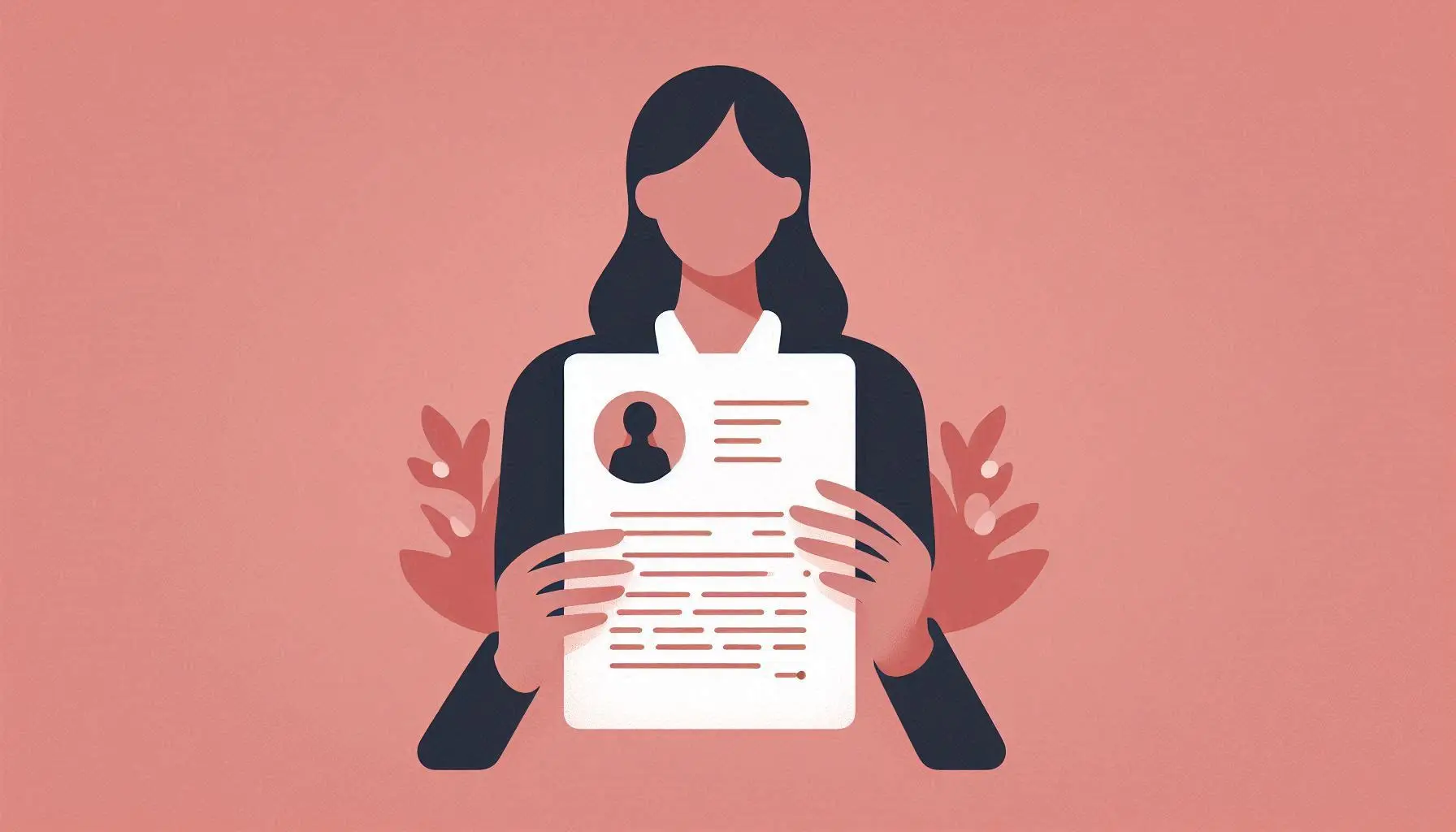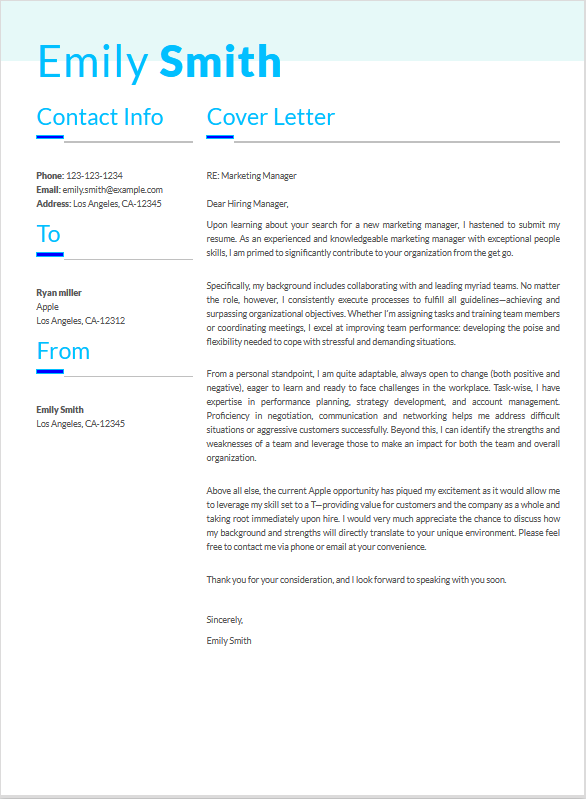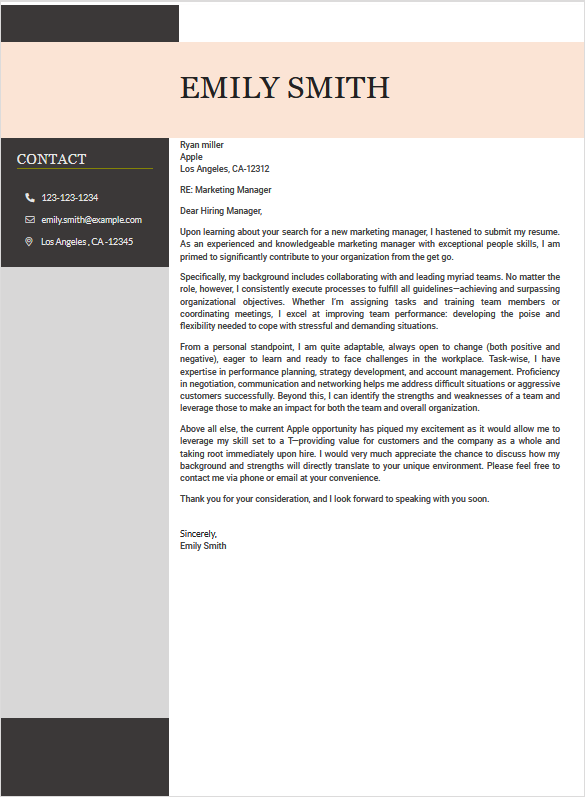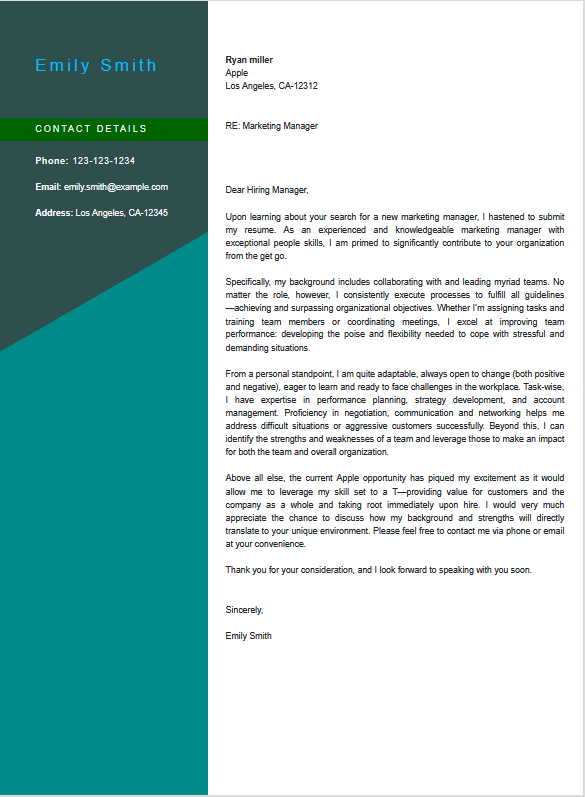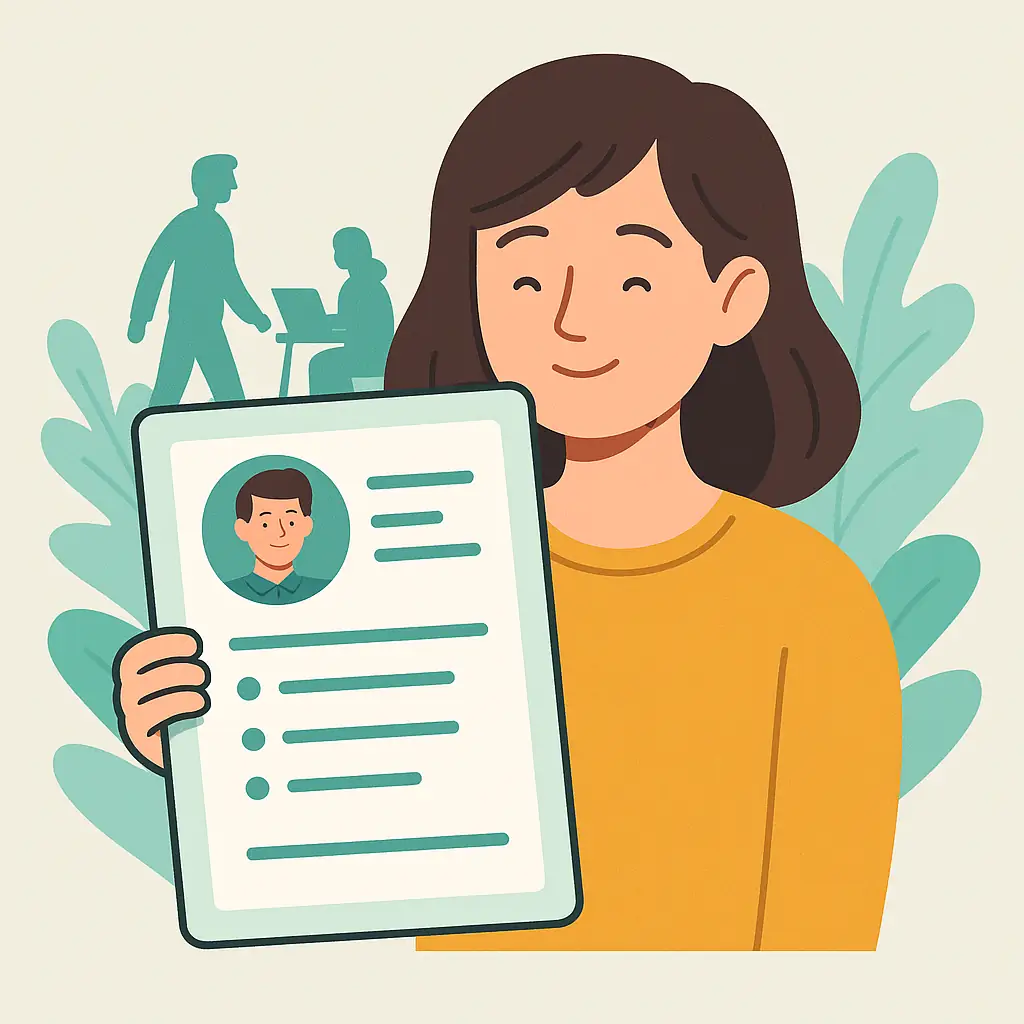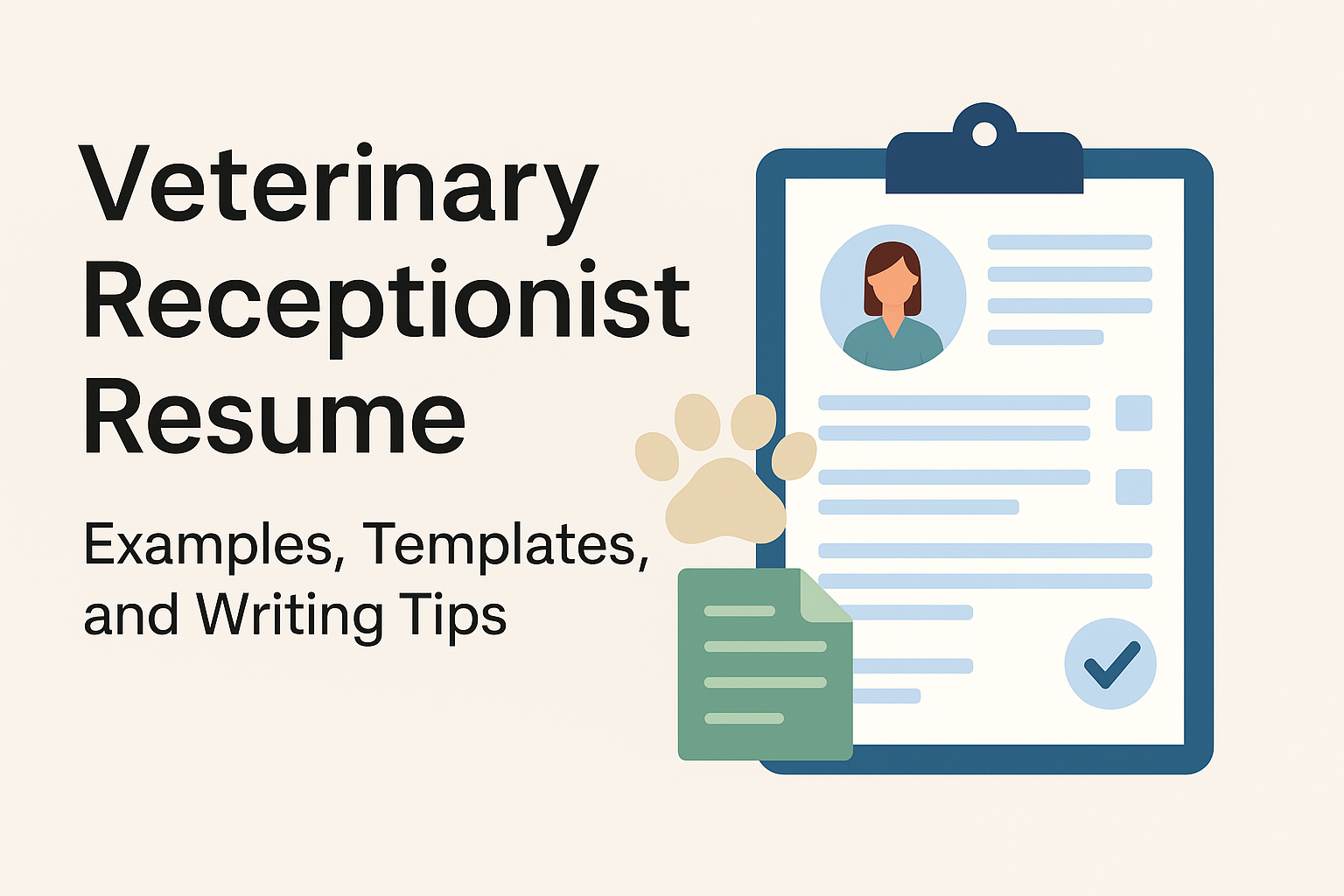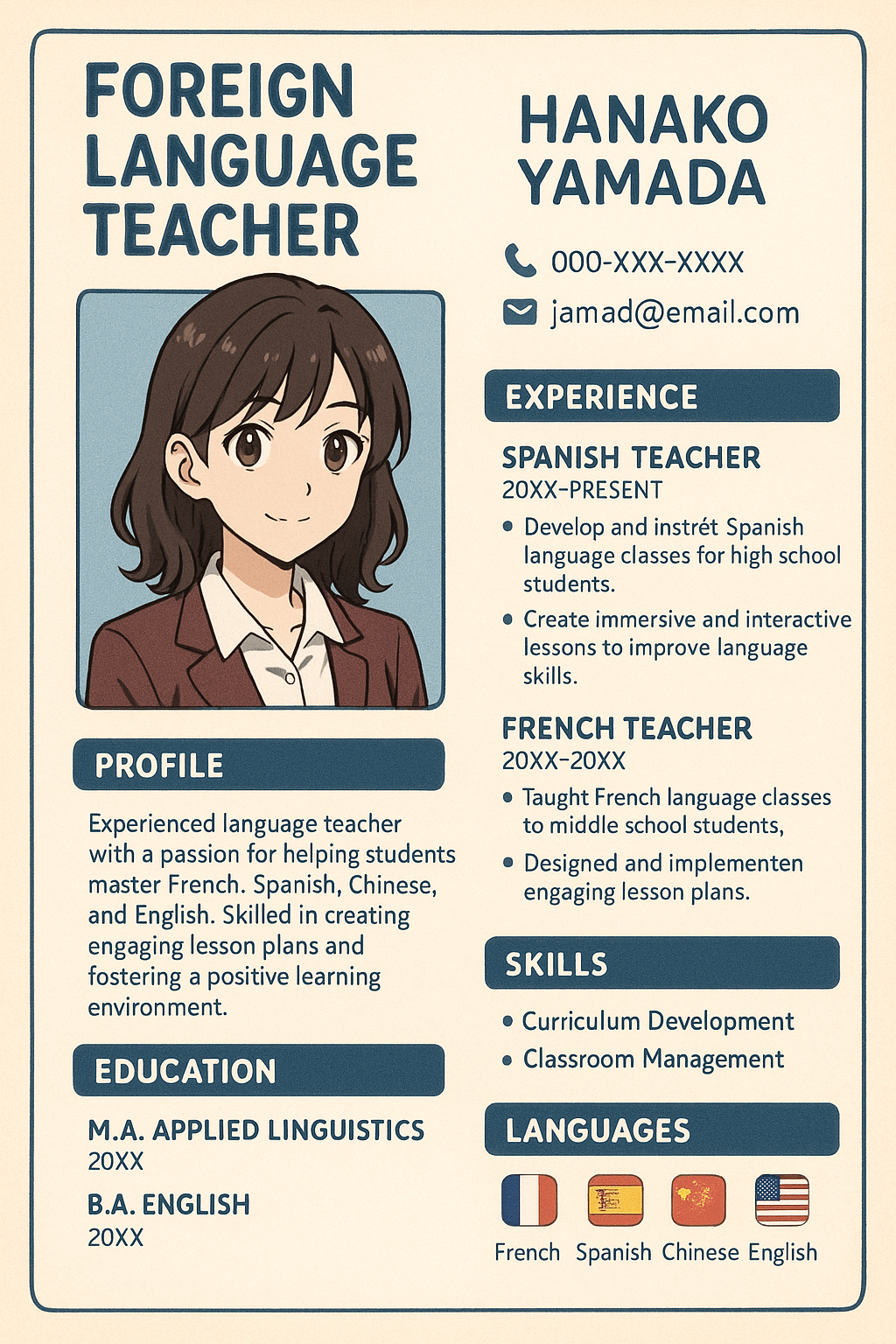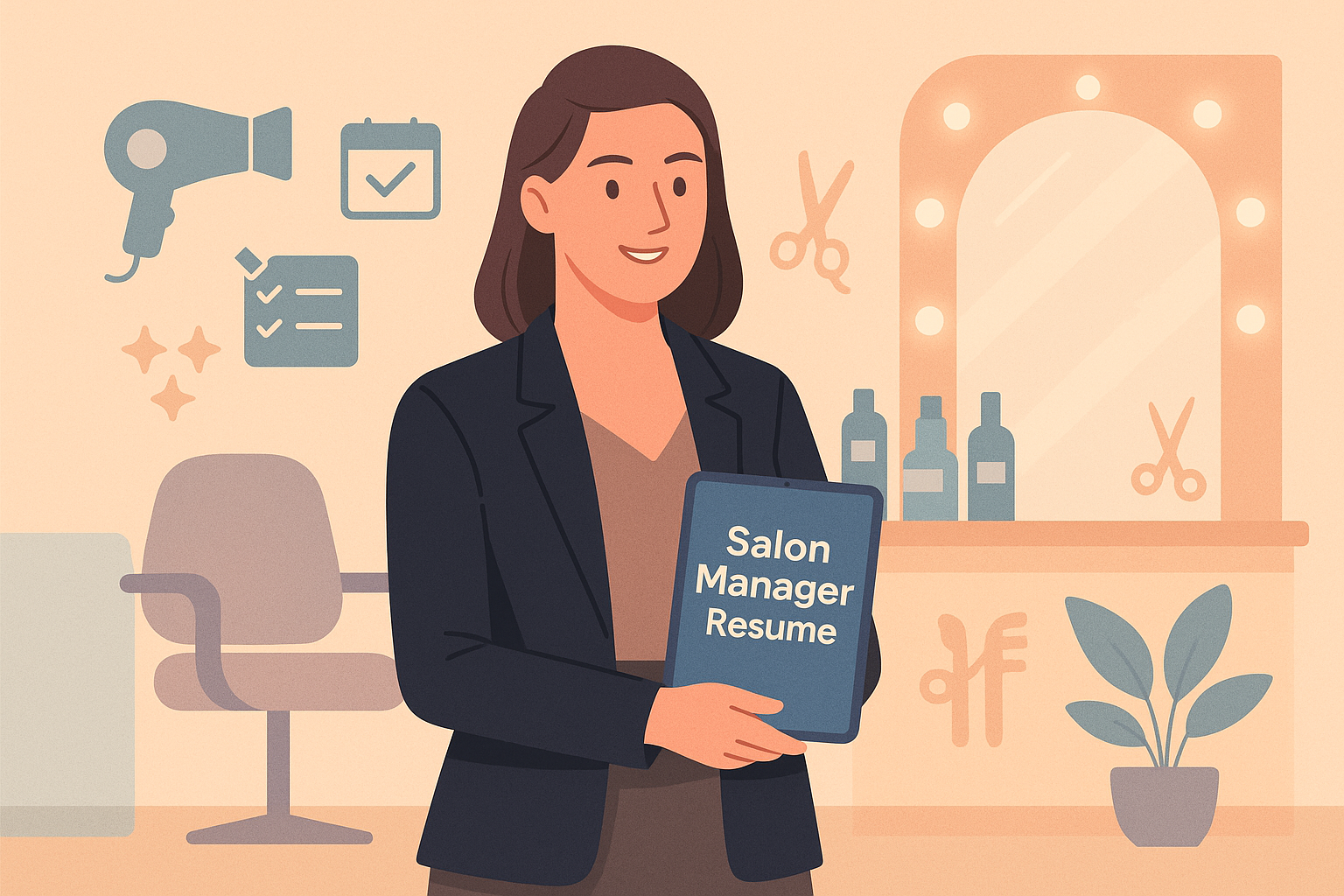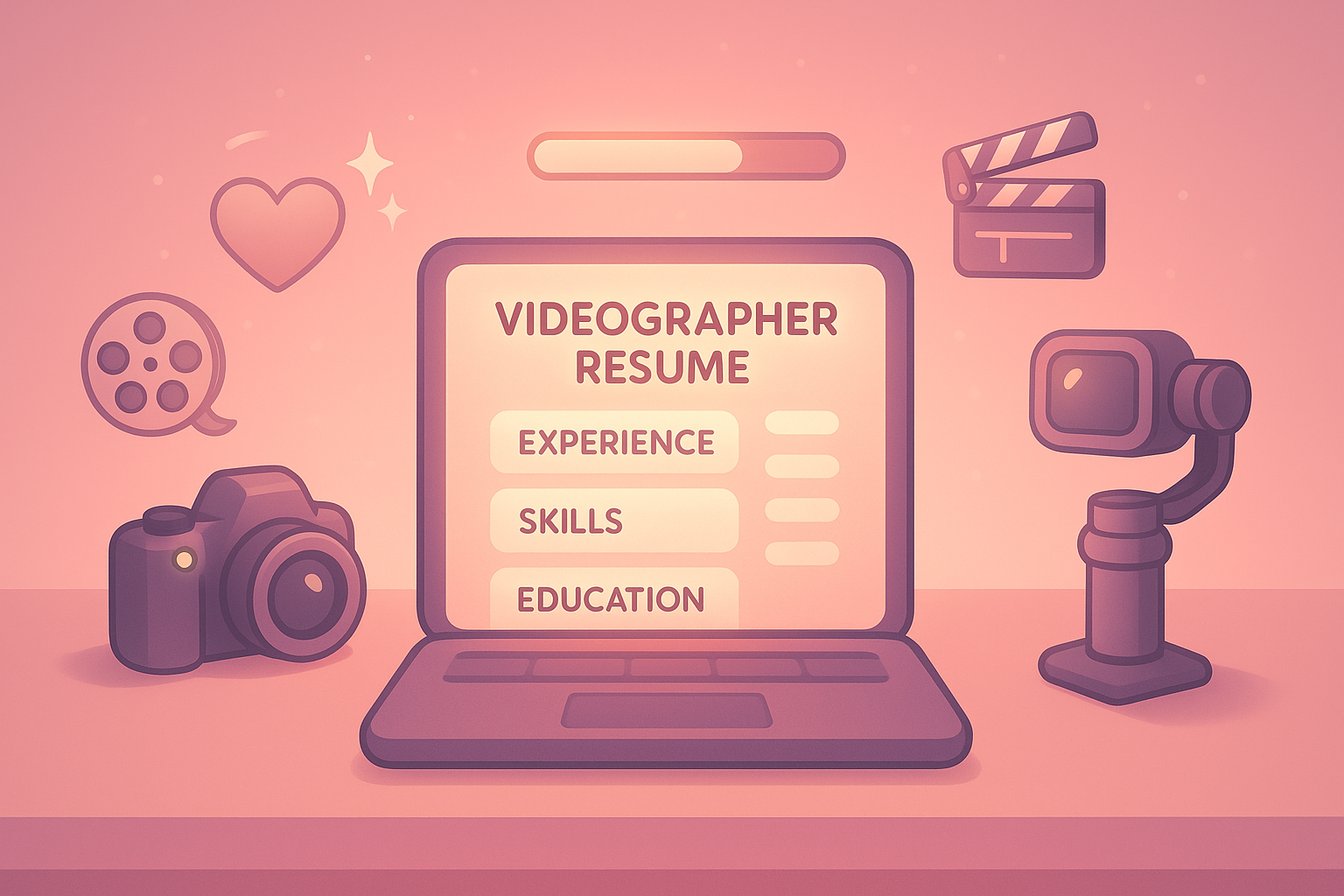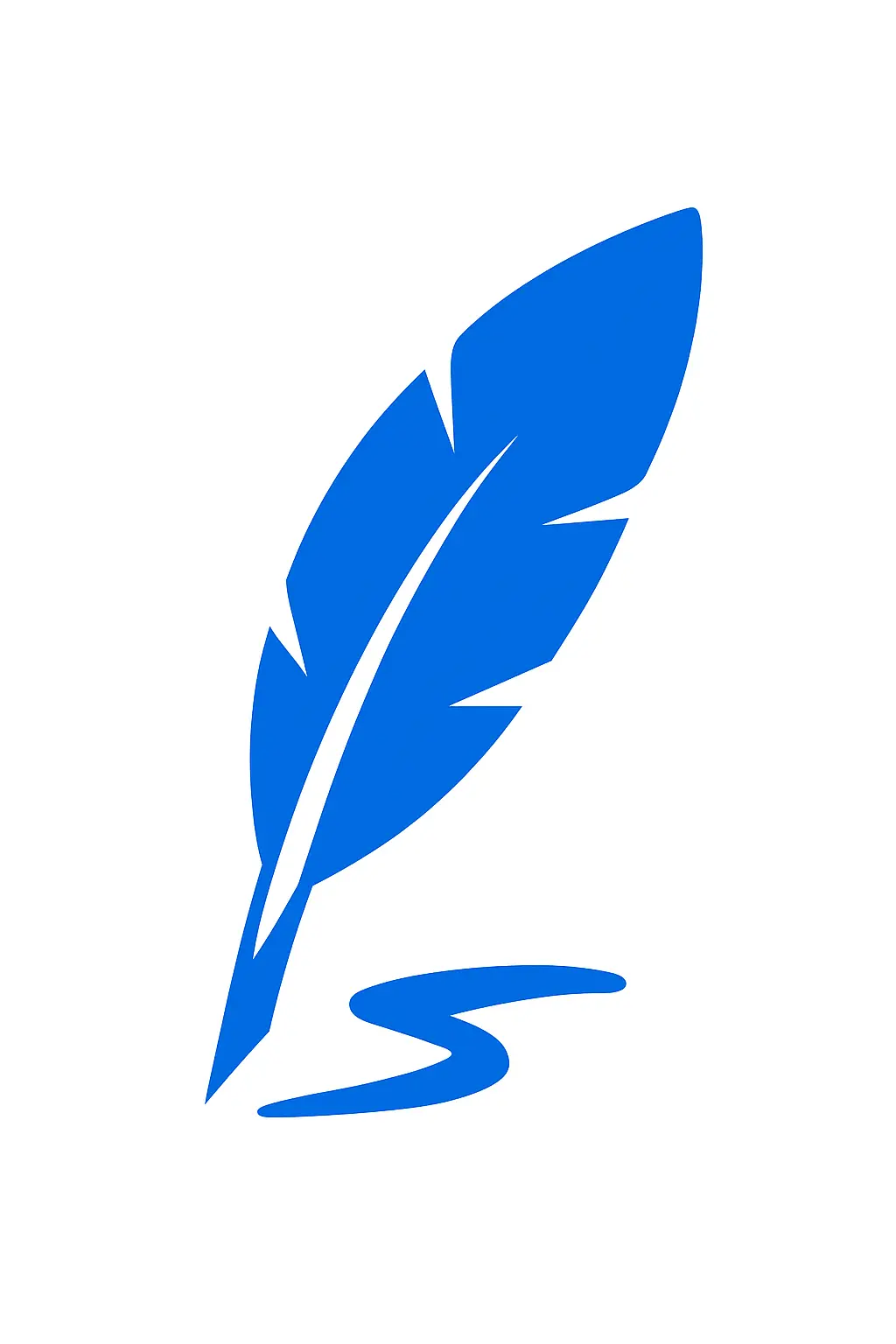 Written By Editorial Team
Written By Editorial Team
When applying for a job, your cover letter helps make a lasting first impression on the hiring manager. It is an effective document that allows you to introduce yourself, highlight your qualifications, and express why you are the ideal fit for the position. But job seekers often get stuck on the question: How long should a cover letter be or how long is a cover letter typically?
The answer may seem straightforward, but the ideal length of a cover letter varies depending on several factors, including the industry, the job, and the content you need to include.
So, let’s explore the ideal cover letter length, how to shorten or lengthen it, and how many words you should include in a cover letter. By the end of this article, you will be able to tailor a cover letter that will help you get your dream job!
Why is the Length of a Cover Letter Important?
Before we answer your question, how long should a cover letter be, let’s first understand the importance of right length.
The length of your cover letter plays a crucial role in how it is received by hiring managers and recruiters. Hiring professionals have limited time to review each application. A concise, to-the-point cover letter can demonstrate your ability to communicate effectively. A cover letter that is too long will likely overwhelm the recruiter, whereas a cover letter that is too short will fail to provide enough information about your qualifications, strengths and achievements.
The goal of your cover letter is to introduce yourself, explain why you are the best fit for the role, and convince the employer that you are worth interviewing. At the same time, you should respect the reader’s time. That is why the ideal cover letter length is typically one page. This gives you enough space to highlight your most relevant skills and experiences without being overly detailed or repetitive.
What is the Ideal Length for a Cover Letter?
Regarding cover letter length, it is essential to find the balance between providing enough relevant information and keeping it concise. A cover letter that is too short will seem incomplete or rushed, while a cover letter that is too long will be a burden for the reader and may be left unread.
So, the question is how many words should a cover letter be?
Ideally, a cover letter should be between half a page and one full page in length. This typically means it should be approximately 250 to 400 words long.
A cover letter of this length gives you enough space to introduce yourself and discuss your relevant skills and experience. It also allows you to explain why you are interested in this particular position without overwhelming the reader with unnecessary details.
How To Structure Your Cover Letter?
The next thing we need to discuss is how long should a cover letter be and how to allocate the word count to each section. A well-structured cover letter helps the reader follow your narrative easily, which eventually increases your chances of landing an interview.
Here is a guide on how to break up your cover letter into sections and keep it concise and informative.
Introduction (50-75 words)
The first paragraph should serve as an introduction to who you are and why you are writing. This is where you try to grab the attention of the reader. So, make sure to customize it to the specific job and company. If possible, address the hiring manager by name and mention the position you are applying for. Make it clear why you are excited about the opportunity.
Example:
“I am excited to submit my application for the [position name] at your [company name]. With a passion for [industry/field], I have followed your company’s growth and admire your commitment to [specific company value or project].”
Highlight Your Qualifications (100-150 words)
The second paragraph is what we call the heart of your cover letter. Here, you must showcase your qualifications, skills, and experiences relevant to the job you are applying for. Instead of repeating points from your resume, focus on mentioning a specific story or achievement that illustrates your brilliance and how you can contribute to the company’s growth. Try using metrics or concrete examples whenever possible to show the impact you made in your previous roles.
Example:
“In my previous role as a marketing manager at [company name], I led a team that successfully increased website traffic by 40% through targeted digital campaigns. I am confident that my expertise in developing high-impact strategies would allow me to contribute effectively to your team.”
Express Interest in the Company (50-75 words)
In this paragraph, you can elaborate on why you want to work for this particular company. Show that you have researched the company and that your values align with the company’s. This will demonstrate your genuine interest and enthusiasm.
Example:
“What excites me most about the opportunity at [company name] is your commitment to [company initiative or value]. I am eager to bring my skills in [specific skill] to a team that is dedicated to [mention company goals or projects].”
Conclusion (50-75 words)
The final paragraph should restate your interest in the position and express your desire for an interview. Be polite and professional and express gratitude for the opportunity. A call to action is always important, as it lets the hiring manager know how to move forward.
Example:
“Thank you for considering my application. I would welcome the opportunity to further discuss how my background, skills, and enthusiasm align with your needs. Please feel free to contact me at [your phone number] or via email at [your email address].”
Adjusting the Length Based on Experience Level
Your cover letter length and content may vary depending on your experience level. A recent graduate’s cover letter will look quite different from that of a senior professional.
Entry-Level Candidates (250-300 words)
You may not have many years of professional experience to showcase if you are just starting your career. Focus on your educational background, internships, volunteer work, and any transferable skills. Keep your cover letter short and to the point, focusing on what makes you a strong candidate for the role based on your enthusiasm and potential.
Example for entry-level:
“With my recent degree in marketing from [University Name], I have developed strong skills in digital strategy and data analysis. During my internship at [Company Name], I successfully contributed to a campaign that increased social media engagement by 25%.”
Mid-Career Professionals (300-350 words)
For professionals somewhere in the middle of their careers, you will have some experience and achievements to highlight. This is where you can add metrics or other accomplishments that demonstrate your impact. However, be mindful not to overload the hiring manager with too much detail. Focus on a few key accomplishments that align closely with the job you are applying for.
Example for mid-career:
“With 10 years of experience as a project manager, I have successfully led cross-functional teams to deliver complex projects ahead of schedule, saving my previous employer over $200,000 annually.”
Senior-Level Professionals (350-400 words)
Senior professionals can emphasize their leadership qualities, strategic vision, and long-term achievements. If you are at a senior level, use this section to illustrate how your experience can help the company meet its goals. At this stage, you can also briefly mention industry awards, certifications, or leadership roles.
Example for senior-level:
“As a Senior Operations Manager with over 15 years of experience, I have overseen large-scale operational initiatives that resulted in a 30% reduction in costs and a 15% increase in overall efficiency.
Tips for Shortening Your Cover Letter
If your cover letter is too long, it is time to trim it down. Here are some tips on how to shorten your cover letter without sacrificing its effectiveness:
Remove Unnecessary Details
Avoid including details that don’t directly relate to the position. For instance, if you are applying for a marketing job, you don’t need to mention every single skill you have ever learned. Just mention the ones that matter most for the role.
Eliminate Repetition
Look for sentences or phrases that repeat information you have already conveyed. Repetition can waste space and may make your cover letter feel redundant.
Focus on Key Achievements
Instead of listing every job duty, focus on your key achievements and the impact you made in previous positions. Hiring managers want to know how you can add value to their company, not just what you have done in the past.
Use Active Language
Using active verbs and keeping your sentences direct will help reduce wordiness and create a more engaging, concise narrative.
Tips for Lengthening Your Cover Letter
On the other hand, if your cover letter is shorter, how can you extend it?
Well, here are a few ways you can add more detail to your cover letter
Expand on Your Skills
Take the opportunity to elaborate on specific skills and how they apply to the job you are applying for. Providing examples of how you have used those skills in past positions can help strengthen your case.
Discuss Your Passion for the Role
One way to lengthen your cover letter without padding is to convey more enthusiasm for the role. Explain why you are passionate about the job and the company and how your values align with theirs. This can create a stronger connection with the employer.
Provide More Context for Your Achievements
Instead of simply stating your accomplishments, consider providing more context. For example, rather than saying, “I increased sales by 20%,” explain how you did it and what strategies or skills you used to achieve this success.
Explain How You Fit the Company Culture
Employers not only want to know that you are qualified for the job, but they also want to see if you will be a good fit for the company culture. Use this space to explain how your values align with the company’s mission and goals.
Formatting Your Cover Letter for Readability
Aside from length, the format of your cover letter is equally important. You want to ensure it is visually appealing and easy to read.
- Use a Professional Font: Stick to standard fonts like Arial, Calibri, or Times New Roman, in 10 to 12-point size.
- Keep Margins Standard: Use 1-inch margins on all sides for a clean look.
- Ensure Enough White Space: Proper white space helps the reader navigate the document easily. Avoid dense paragraphs and aim for clarity.
- Making It Too Long or Too Short: Avoid writing more than one page or cramming everything into just a few sentences. Striking a balance is vital; aim for 250-400 words. Also do not write long paragraphs. Keep each to 3-4 lines.
- Using a Generic Template for Every Job: Sending a one-size-fits-all cover letter can come across as impersonal. Customize each cover letter to showcase your suitability for the specific role and company.
- Repeating Information from the Resume: Don’t simply restate what is already in your resume. Instead, expand on your achievements and explain how they relate to the job you are applying for.
- Focusing on Responsibilities, Not Results: Employers want to see your impact, not just what you did. Emphasize achievements and measurable results rather than listing tasks.
- Ignoring the Company’s Culture: A mismatch in tone can make it seem like you don’t understand the company. Research the company culture and adjust your tone accordingly.
- Forgetting to Include a Call to Action: End your letter with a clear call to action, inviting the hiring manager to contact you for an interview.
- Failing to Proofread: Spelling or grammatical errors can leave a negative impression. Proofread carefully to ensure professionalism.
- Overusing Keywords: While using keywords from the job description is essential, overstuffing them can make your cover letter sound robotic. Use keywords naturally.
- Using Weak Language or Passive Voice: Words like “I think” or “I believe” weaken your statements. Instead, use confident, action-oriented language to convey your capabilities.
Concluding Thoughts
So, now you know how long should a cover letter be. A cover letter should not be more than one page and must contain between 250 and 400 words. This length allows you to provide enough detail to demonstrate your qualifications while also keeping the reader’s attention. Be sure to focus on your most relevant experiences, highlight your enthusiasm for the role, and maintain a clear, concise format. Tailor your cover letter to the job, and remember that a well-crafted cover letter is always the key to securing an interview.
For an example of a well-crafted concise application, see our short cover letter sample.

